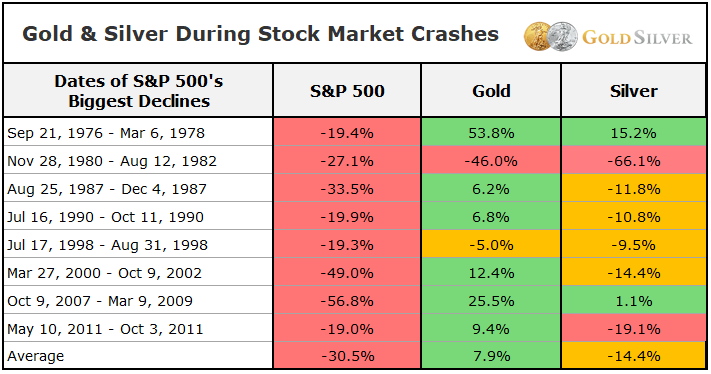With deflation engulfing the world right now, is there really any reason to worry about inflation?? ?
Yes. As I'll show below, not only has inflation started abruptly many times throughout history, the current actions of the Fed and other central bankers are the very actions that have caused high inflation in the past.
We have some research on inflation that we haven't seen elsewhere, research that can potentially be very useful to all of us in preparing for what is likely ahead. |
|
You've undoubtedly heard about the unprecedented level of fiscal and monetary stimulus governments and central bankers have undertaken. The response to the virus has been unprecedented in all of history. |
. The US passed a $2.2 trillion aid package, the largest in history. Another bill for $1 trillion is in the works, though now some are saying it's not enough and that an additional $1 trillion is needed. |
. Meanwhile, the Fed has cut interest rates twice, and in a dramatic declaration promised "unlimited and open-ended" QE. The government seems to have concluded from this that it now has no constraints on spending-as long as the Fed continues to monetize borrowing by purchasing the debt. |
. And of course it's not just in the US. The G20 announced on March 26 it would inject more than $5 trillion into the global economy. Here's a good article that lists the worldwide levels of fiscal and monetary efforts recently taken. |
Perhaps the more appropriate question is, how does all of this not lead to inflation?
Deflationists will point to Japan, which not only has history's highest debt-to-GDP ratio, but also the most radical monetary policy-and yet has low to no inflation. Demographics are the likely explanation, as Japan's aging population has put downward pressure on prices for years despite all the printing.
But Japan is the exception, not the rule. And don't forget that governments and central bankers prefer inflation over deflation. In deflation, prices fall, which can lead to lower profits for businesses. higher unemployment. lower wages. and lower consumer spending. And of course inflation reduces the real burden of the government's debt. Governments want inflation.
At a minimum, it seems we should prepare for some level of inflation, perhaps as bad as Mike Maloney outlined in episode 7 of Hidden Secrets of Money.
|
|
Most mainstream investors don't realize that history shows inflation can quickly get out of control, and not just in some mismanaged third-world country. Inflationary shocks have occurred right here in the US. Multiple times. ?
Most historical studies on inflation only go back to the 1970s. But as Mike has always taught, the further back you go in history, the more you can learn about the future.
Amity Shlaes, an author with an impressive bio, identified several examples from the past 100 years when US inflation started mildly but then soared to alarming levels. Even more startling is that those inflationary spikes occurred within just two short years.
Check out how much the rate of inflation rose during these periods. |
? |
|
Over the past century, inflation in the US has spiked in dramatic and rapid fashion on three separate occasions. |
. Based on an earlier version of the CPI-U, Shlaes says US inflation was at 1% in 1915. Within just two years, it soared to 17%. She reports this runaway rise in prices was because the Treasury "spent like crazy on the war, creating money to pay for it." |
. The official inflation rate in 1945 was 2%, but surged to 14% within a mere 24 months, a 7-fold increase. |
. The CPI registered 3.2% in 1972, and hit 11% by 1974. Worse, it continued to march higher over the decade, peaking at 14.7% in April 1980, in what amounted to a near 5-fold rise. |
What this research tells us is this: |
|
? |
? |
| |
|







 Arts and Entertainment
Arts and Entertainment Business and Industry
Business and Industry Computer and Electronics
Computer and Electronics Games
Games Health
Health Internet and Telecom
Internet and Telecom Shopping
Shopping Sports
Sports Travel
Travel More
More